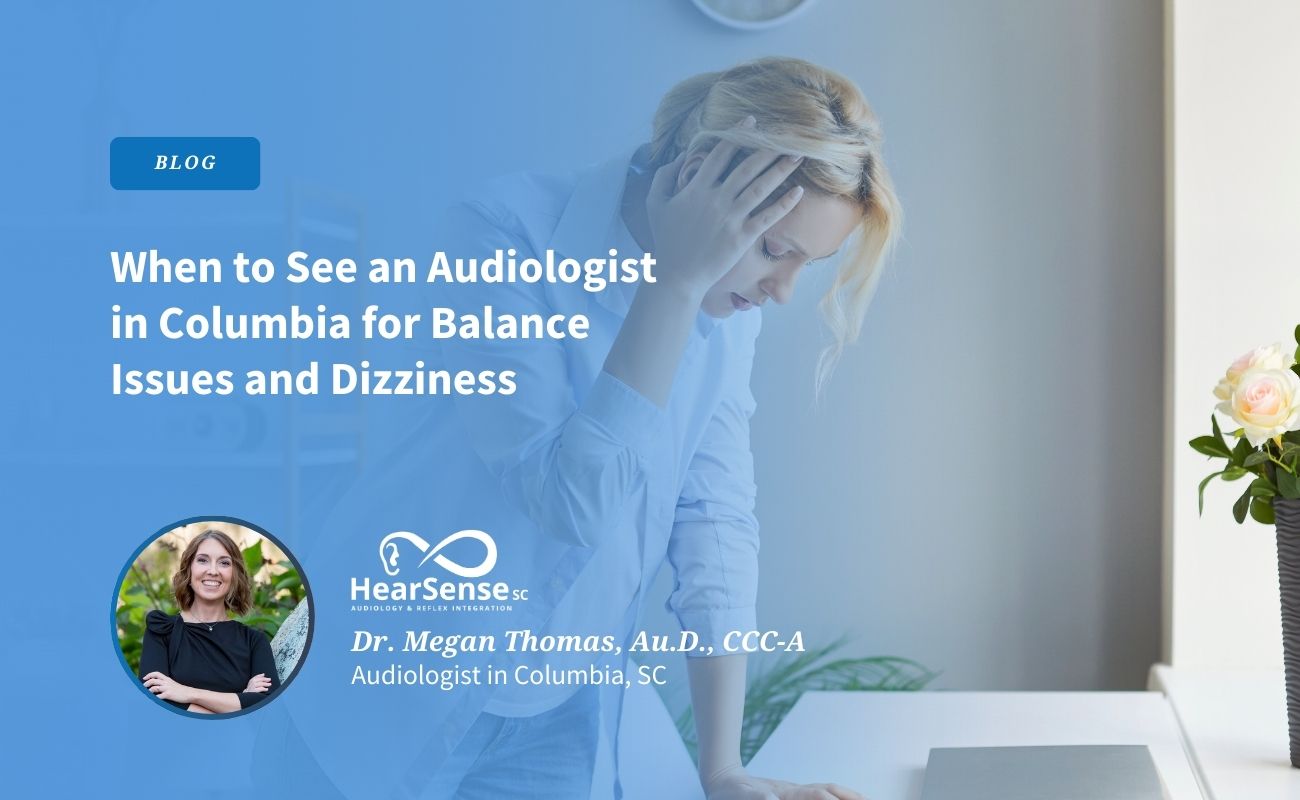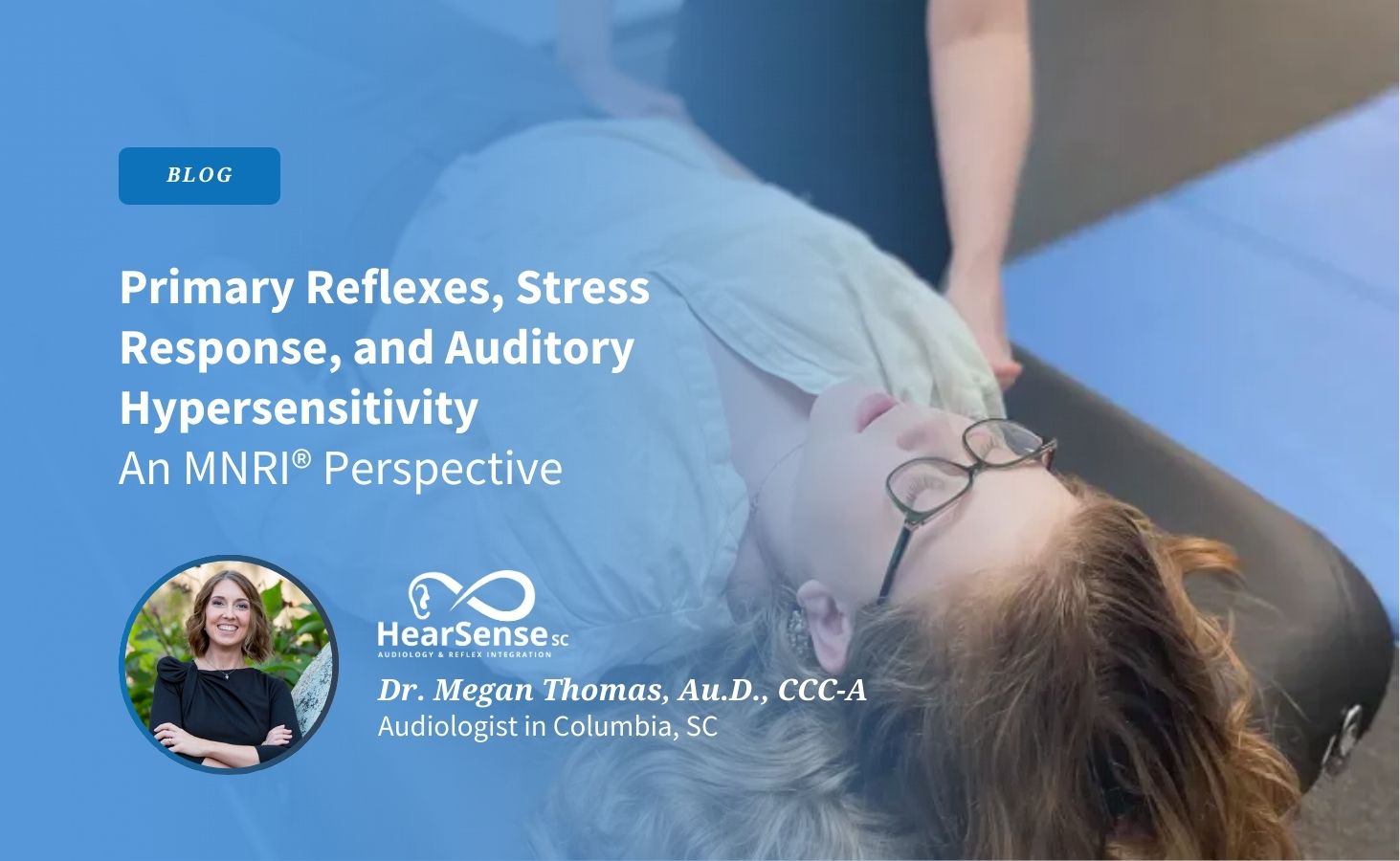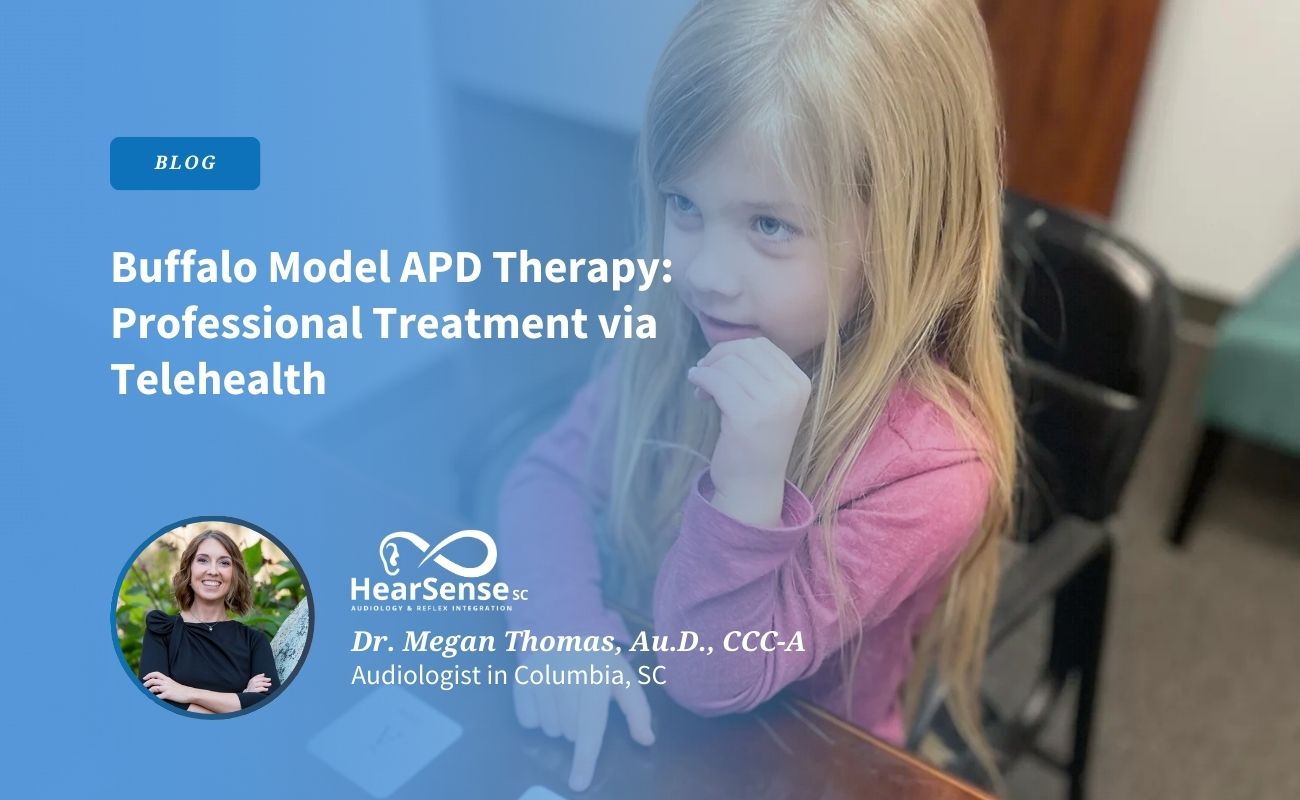Auditory Processing Disorder Signs, Testing & Treatment in Columbia
.jpg)
Auditory Processing Disorder (APD) affects how the brain processes and interprets sounds, even when hearing sensitivity is normal. At our Columbia, SC clinic, we frequently see children and adults who struggle with understanding speech in noisy environments, following multi-step directions, or distinguishing between similar sounds. These challenges can significantly impact academic performance, workplace communication, and daily interactions, often leaving individuals and families searching for answers to persistent listening difficulties.
Understanding Auditory Processing Disorder
APD occurs when the electrical signals from sound waves reach the brain with delays or distortions, making learning and memory formation difficult. Unlike hearing loss, which affects the ear's ability to detect sounds, APD affects how the central nervous system processes auditory information. This means someone can pass a standard hearing test but still experience significant difficulties with auditory tasks that require complex processing.
The condition represents a disconnect between what the ears hear and how the brain interprets those sounds. While the peripheral hearing system functions normally, the central auditory pathways struggle to analyze, organize, and make sense of incoming acoustic information. This processing breakdown can affect everything from basic sound discrimination to complex language comprehension.
The condition manifests differently in each person, but common patterns emerge that help us identify and treat specific processing challenges. We use a comprehensive evaluation approach that examines four key areas of auditory processing to create targeted treatment plans tailored to individual needs and processing profiles.
Recognizing the Signs of APD
Children and adults with APD often exhibit similar symptoms, though they may present differently depending on age and environment. In children, parents and teachers frequently notice difficulty following verbal instructions, frequent requests for repetition, and struggles with reading and spelling despite normal intelligence. These children may appear to have selective hearing, responding inconsistently to spoken directions or information.
Academic performance may suffer as children have trouble processing information delivered through lectures or group discussions. They may struggle to take notes while listening, miss important details in verbal presentations, or have difficulty with phonics-based reading instruction. Mathematics word problems can be particularly challenging, as they require processing both linguistic and numerical information simultaneously.
They may appear inattentive or easily distracted, particularly in noisy classroom environments. Social interactions can become challenging as they miss subtle cues in conversation or struggle to follow rapid exchanges between peers. These children might withdraw from group activities or become frustrated when they cannot keep up with conversational flow.
Adults with APD often report feeling exhausted after meetings or social gatherings due to the extra effort required to process speech. They may avoid noisy restaurants or large group conversations, and frequently ask others to repeat themselves. Phone conversations can be particularly difficult, as they lack visual cues to support understanding.
Workplace challenges may include difficulty with conference calls, trouble following presentations without visual aids, or problems processing information in open office environments. Some adults develop coping strategies like reading lips, positioning themselves strategically in rooms, or asking for written follow-ups to verbal instructions.
Some adults first recognize their processing difficulties when their children are evaluated for similar challenges, leading to the realization that their own long-standing listening struggles may have an underlying cause.
Our Comprehensive APD Evaluation Process
We conduct thorough APD evaluations that typically take 3-4 hours, followed by a detailed counseling session to discuss results and recommendations. Before beginning central auditory processing tests, we ensure normal peripheral hearing through comprehensive audiological evaluation, including acoustic reflex testing, otoacoustic emissions, and speech-in-noise testing.
Our evaluation examines four distinct categories of auditory processing that form the foundation of our diagnostic approach:
Integration assesses the ability to combine visual and auditory information effectively. This skill proves critical for reading development, as children must connect written letters with their corresponding sounds. Individuals with integration difficulties often struggle with reading and spelling, as they have trouble connecting what they see with what they hear. They may have particular difficulty with phonics instruction or learning sight words.
Tolerance Fading Memory evaluates how well someone can understand speech in background noise and retain auditory information in short-term memory. This category often explains why individuals struggle in noisy environments like classrooms or restaurants. Problems in this area can affect attention span and the ability to follow extended conversations or lectures.
Decoding measures the brain's ability to quickly and accurately process speech sounds at the phonemic level. This skill relates directly to language development and affects how efficiently someone can understand rapid or unclear speech. Problems in this area can affect vocabulary development, comprehension speed, and overall communication effectiveness.
Organization examines the ability to sequence and organize auditory information in the correct order. Individuals with organizational difficulties may struggle to follow multi-step directions or remember information presented in a specific sequence. This can affect following recipes, assembling items, or completing tasks that require sequential processing.
We provide parents with a typed summary of findings and recommendations on the same day as the evaluation, allowing them to immediately understand how to help their child and provide schools with necessary accommodation recommendations. A comprehensive written report follows approximately one month later, providing detailed analysis and long-term treatment planning.
Treatment Options We Provide
Our treatment approach targets the specific processing areas identified during evaluation, recognizing that each individual requires a customized intervention plan. We offer both Buffalo Model and ARIA therapies, each designed to address different aspects of auditory processing challenges.
Buffalo Model Therapy provides comprehensive treatment protocols tailored to each individual's diagnostic profile. This evidence-based approach addresses the specific categories affected, whether decoding, tolerance-fading memory, integration, or organization. The therapy involves two rounds of sessions with a planned break between rounds, allowing the brain time to process and integrate new skills through neuroplasticity.
During treatment sessions, individuals work on carefully designed exercises that challenge their specific processing weaknesses while building on their strengths. The therapy progresses systematically, gradually increasing difficulty as skills improve. We offer this therapy both in-person at our Columbia clinic and through telehealth services for residents of South Carolina, North Carolina, Georgia, and Florida.
ARIA Therapy (Auditory Rehabilitation for Interaural Asymmetry) represents a specialized treatment approach for individuals with interaural asymmetry or significant differences between the ears. This cutting-edge therapy uses unique auditory stimuli presented to each ear, training the brain to process these differences more effectively.
ARIA therapy proves particularly beneficial for individuals who struggle with sound localization, understanding speech in competing noise, or those with significant hearing differences between ears. The treatment helps establish better integration between the two ears and improves overall spatial hearing abilities. We are currently the only practice in South Carolina offering ARIA therapy, which is available exclusively through in-person sessions at our clinic.
Primary Reflex Integration
Our unique approach includes evaluation and treatment of primary reflexes, which can significantly impact auditory processing abilities. Primary reflexes are involuntary movements that begin in fetal development and should integrate as children mature. When these reflexes remain active beyond their intended timeframe, they can interfere with higher-level functions including auditory processing, attention, and learning.
We use the Masgutova Neurosensorimotor Reflex Integration (MNRI) method to assess and treat retained primary reflexes. This specialized approach addresses underlying neurosensorimotor mechanisms that may be contributing to auditory processing difficulties, providing a more comprehensive treatment strategy that addresses root causes rather than just symptoms.
The integration of primary reflexes can improve attention, reduce sensory sensitivities, and enhance overall neurological function, creating a stronger foundation for auditory processing improvements. This holistic approach sets our practice apart and often leads to more substantial and lasting treatment outcomes.
Why Choose Our Columbia Practice
Our practice offers a unique combination of evidence-based treatments that address auditory processing from multiple angles. Dr. Megan Thomas has completed advanced training in APD evaluation and therapy through the Auditory Processing Institute, as well as specialized MNRI coursework for primary reflex integration, bringing expertise that few audiologists possess.
We provide flexible service delivery options, offering evaluations and Buffalo Model therapy through both in-person and telehealth appointments. This flexibility ensures that geography doesn't limit access to specialized care. Our comprehensive approach examines not only auditory processing skills but also the underlying reflexes that support these abilities, providing more complete treatment outcomes than traditional approaches alone.
Our commitment to same-day results and recommendations means families don't wait weeks for answers. We understand the urgency parents feel when their children struggle, and we provide immediate guidance and support throughout the evaluation and treatment process.
Schedule Your APD Evaluation
If you or your child struggle with understanding speech in noise, following directions, or other auditory processing challenges, an evaluation can provide answers and direction for treatment. These difficulties don't have to be permanent limitations, and with proper identification and treatment, significant improvement is possible. Contact our Columbia office at (803) 567-2533 to schedule your comprehensive APD evaluation and begin the journey toward improved auditory processing abilities and better quality of life.
Related Articles
Read more articles
We have more information about APD, Audiology, hearing aids, hearing loss and more.

When to See an Audiologist in Columbia for Balance Issues and Dizziness

Primary Reflexes, Stress Response, and Auditory Hypersensitivity: An MNRI® Perspective


